The perception of sharpness, I have always contended, is just a tool in the photographers bag.
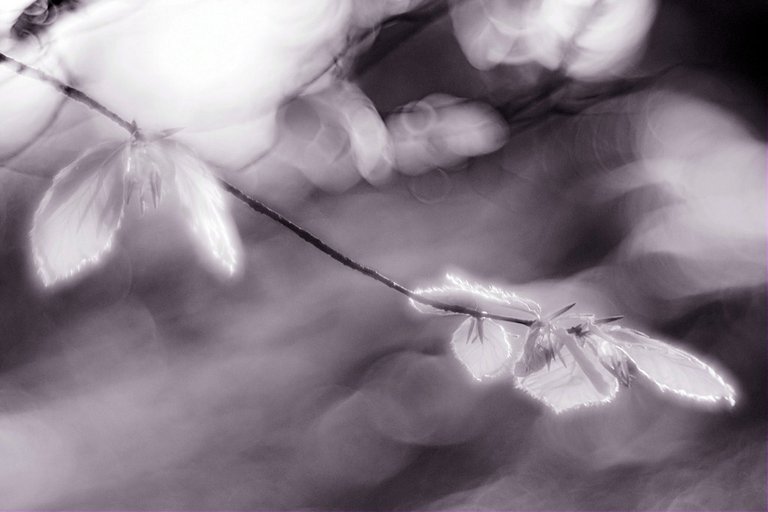
When you look at many of great evocative images dealing with landscape many are far from a crisp razor sharpness. Ansel Adams, even given the huge negative size, by process produced end images that have an ethereal quality in their resolution. And we are all aware of the current trend to use log exposures on subject that move to harness a softening of the image, which can be effectively juxtaposed to any sharp static element in the frame.
What these options in the perceived sharpness of the imagery seek to give us, is a divergence away from the factual representation, to an endpoint where we are presenting differing qualities of an image to evoke a feeling with the audience as a narrative. In other words, we seek to emote; we want not to ‘wish you were there” but “feel you were there”.
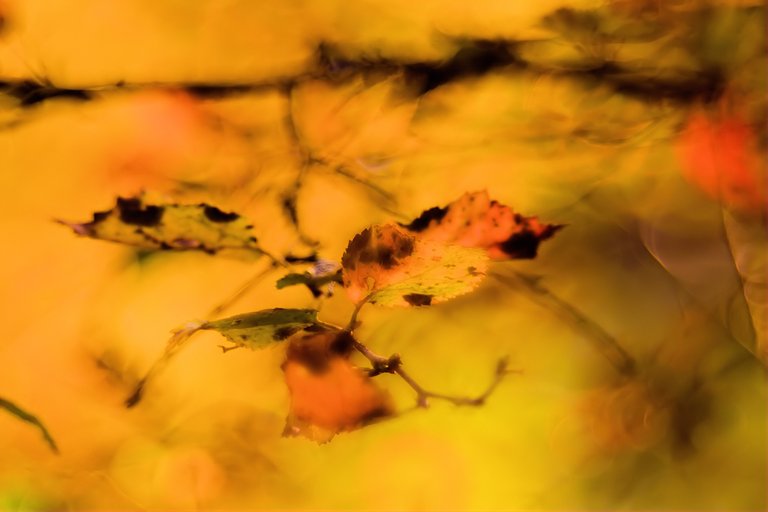
In order to explore this I set myself a project where the goal was to capture the feeling of the seasons where sharpness was not necessary in the end image, but the form should still be natural and recognisable. The other limitation I imposed on myself was that the visual manipulation must, save for contrast, must be achieved in the initial digital capture.
My key for accomplishing this was to seek out a reasonably awful lens that would give me a latent digital image that conveyed a plasticity of form, without being so devoid of contrast that any boosting of this would look un- or supernatural. The solution was to be found in one of my favorite alternative lens world’s, that of projection lenses.
Projection lenses, like the rest of the photographic tool world, cover a broad spectrum of competence; from the top-end Leitz Colorplans and Schneider Xenotars that give you superb flat field resolution at maximum aperture, to the almost comical plastic mass market toys that you are best not to try cleaning. In this field there had to be a solution to my quest – unfortunately my existing selection proved to be all too good in resolution and contrast for the desired end. Until, at that online auction house, popped up a likely candidate; an unbranded uncoated "Two and a Quarter" 6-inch focus f3.8 lens that looked like it had to be a Petzval, bingo.
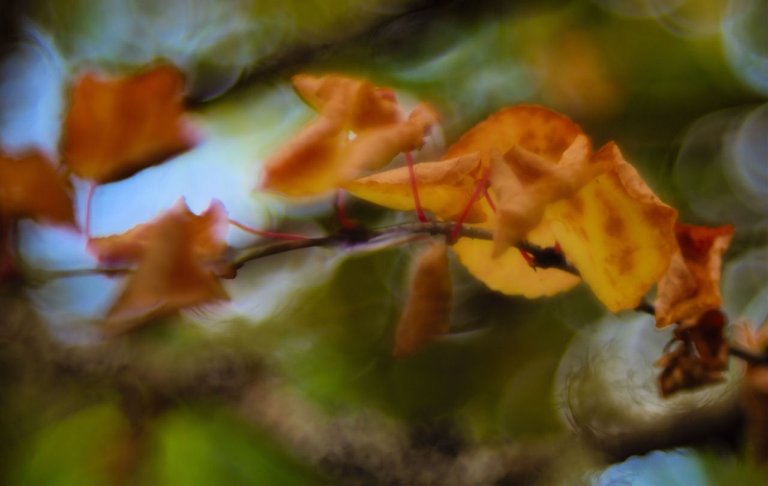
For the uninitiated, the Petzval lens design is often lauded as the first calculated lens, giving you a relatively fast relatively achromatic lens, albeit with an odd quirk. Namely, if you use the bulk of its imaging circle its out-of-focus highlights get slightly elongated and rotated, giving the effect that your bokeh is swirling around the central subject. This was an effect that I wanted to avoid, and I was fairly confident that as my CMOS sensor was a fraction of the imaging circle I would skip this distracting, for my purpose, side-effect.
When the lens duly arrived, it was as expected, rather cheap being comprised of one group of two cemented lenses separated from a group of two air-spaced lenses by means of an extruded aluminium barrel. No meaningful expense was wasted in the production or presentation of the lens. It had some dried gunk on it, which was gently shifted by the application of various solvents, and once cleaned it was surprisingly pristine.
Mounting the lens was a simple task, it was centered and non-permanently heat glued to an enlarger lens flange, and that likewise fixed to a M39 to M42 adapter ring. The resulting assembly could then be affixed to bellows, or a helical focusing tube. All that was needed now was the subject matter.
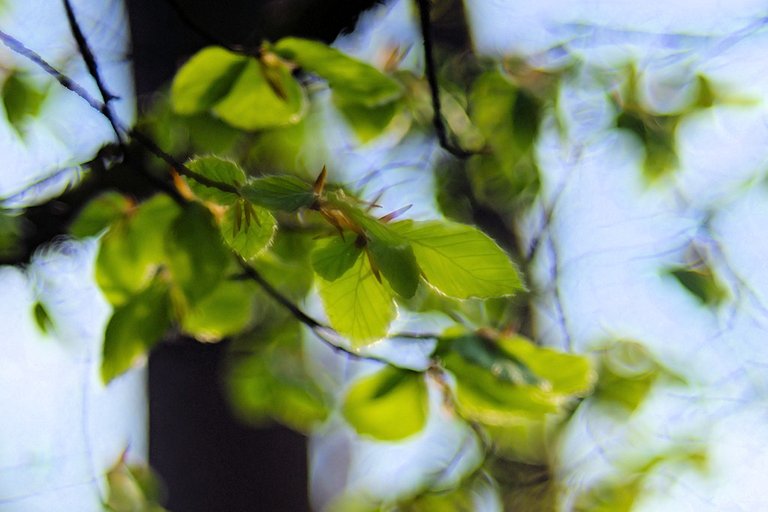
When I think of seasonal differences the one characteristic that jumps to my mind is leaves, then the elemental effects on them; the youth of spring with the glancing light, the nurture of summer with the warming glow, the false warmth of the autumnal twilight of the year, and onto the glassy ice light of the dead winter.
With a lens with such poor rendering and fixed narrow depth of field, the bokeh that the lens can generate becomes integral to the delivered result, and must be calculated for when composing the shot. When designing projector lenses, no self-respecting designer would ever consider managing the internal edge reflections that in simple lens designs would give you bubbly bokeh, quite simply it is not part of the brief as in a projector the cause just doesn’t arise (likewise CA management – but that is another story). So simple light path lens designs like Petzvals and Triplets are inclined natively to have bubbly bokeh, and complex ones like Colorplans and Xenotars that manage the light path more rigorously are not.
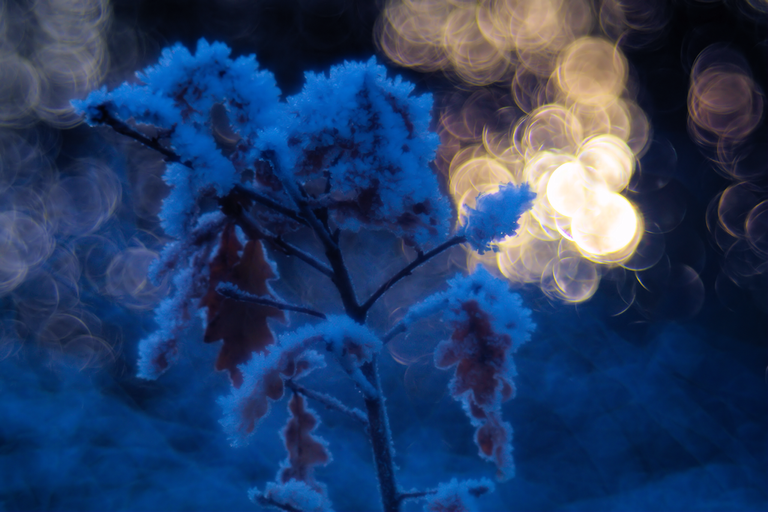
Compositionally bokeh is always problematic. It is just one of these things you have to teach yourself to see it as the camera does. As we all know photography is fundamentally a static snap-shot in time, alas bokeh is one of those things we generally ignore the effects of in our continuous vision, particularly in relation to highlights. This is because our brain tends to process out these aberrations as visual noise. So, we have to make a conscious effort to observe them, and judge their effect in the digital image. This is particularly the case with relatively unsharp lenses, as the internally reflected edges of the highlights will often will be the sharpest rendered element in the composition. Which brings up the other essential point, cleanliness.
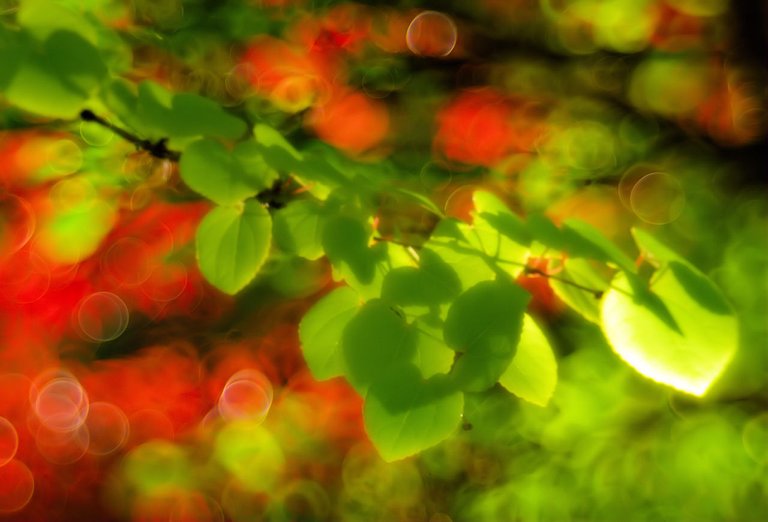
Where you are making use of bokeh highlights, cleanliness is beyond godliness – it is essential. The bokeh highlights are generated by the internal reflections in the lens’s design, if your internal reflection has a bit of dust in it, it will appear in-scale in each one of your bokeh highlights – this is the great bonus of simple lens design like triplets and Petzvels, they are relatively straightforward for a competent person to gently clean.
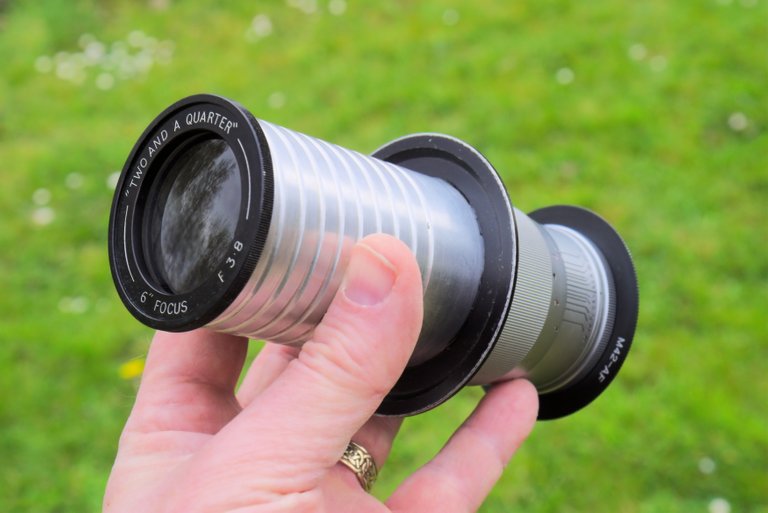
The end results, I am pleasantly surprised with myself. What started out as a simple good little wheeze, experiment and/or distraction turned out to be a very valuable project that has added to my skill level, and given me results I am more than happy to share. It is also a project that I fell still has more to come from it – it is not just a one trick pony that I feel I have yet found the limits on or satisfied my curiosity with. It is fair to say I was late to the digital party, but it is in experimenting with techniques and effects digital technology allows you to progress unbelievably rapidly through experimentation to a competent result.
Love the blur and bokeh! Great art lens you have out there...
Manually curated by PhotoStreem: The Photography Tribe
Join Photostreem DISCORD
Follow the Trail
Congratulations @axeman, you are successfuly trended the post that shared by @scotgillespie!
@scotgillespie got 6 TRDO & @axeman got 4 TRDO!
"Call TRDO, Your Comment Worth Something!"
To view or trade TRDO go to steem-engine.com
Join TRDO Discord Channel or Join TRDO Web Site
Thank you very much. I have done a lot of experimenting with various odd lenses, and this one delivers some very interesting results. I have a few more articles I will post up over the next few weeks that will further explore composition, aesthetics, bokeh and lenses.
Very interesting effect, and very interesting explanation for people who, like me, appreciate photography on an amateur-ish level. I always appreciate people who explain what they're doing and why they're doing it in a certain way.
And awesome pictures!
Thank you so much. My main aim is to pass-on knowledge and spread understanding, thus why I started writing essays/articles.
👍
~Smartsteem Curation Team
Thank you
Congratulations @scotgillespie! You have completed the following achievement on the Steem blockchain and have been rewarded with new badge(s) :
You can view your badges on your Steem Board and compare to others on the Steem Ranking
If you no longer want to receive notifications, reply to this comment with the word
STOPVote for @Steemitboard as a witness to get one more award and increased upvotes!
This post has been manually curated by PhotoStream: The Photography Tribe!
Thank you very much